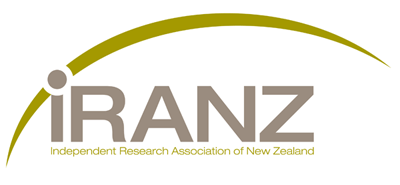COVID-19: NZ independent research responses
The New Zealand science community's marshalling of resources in the ongoing fight against COVID-19 has been unprecedented, and, while there will no doubt be downstream consequences for research that was in progress and for proposals that were in the pipeline, there are also opportunities in a time of crisis.
Inventory
Initial responses in March included compiling an inventory of services and supplies that are available in Independent Research Organisations (IROs) for a nationwide list coordinated by Universities New Zealand for the Government.
This inventory, which includes CRIs, IROs, and universities, is important so Government and testing laboratories know exactly where supplies, tech, and expertise are located around the country when and if we need it in the fight against COVID-19.
For example, both the Cawthron Institute, which deals primarily with aquaculture, freshwater and marine environments, and Lincoln Agritech, which deals primarily in agriculture and land environments, have many scientists with extensive molecular skills, including RNA extraction and PCR testing. PCR or polymerase chain reaction is used to amplify a segment of RNA or to produce lots of copies of the genetic material. Both organisations have equipment and a list of volunteers standing by if needed to relieve tired scientists working on sample analysis in labs in their localities.
Meanwhile, the Cawthron Institute laboratory for food safety testing and certification for absence of listeria and natural toxins remains operating to ensure the safety of New Zealand’s food and drinking water to keep us healthy.
Verum Group has also remained active during the lock down to ensure drinking water quality and meeting the testing requirements for the energy systems that support essential service providers. Chief Technology Officer at Verum, Dr Murray McCurdy, says they, along with other IROs, will be heavily involved in any infrastructure boom as New Zealand recovers from the inevitable recession. “We don't have to gear up to do this, we are already connected to multiple industries in energy, aggregate, steel, etc. We are ready now.”
Even New Zealand’s newest IRANZ member, the New Zealand Institute for Materials to Minerals Research has offered laboratory equipment and a scientist with experience in working in physical containment laboratories who could potentially help Greymouth Hospital.
Boost for medical research
Even as outpatient studies were pausing to protect outpatients and staff, the Medical Research Institute of New Zealand (MRINZ) was gearing up to respond to the threat posed by the pandemic. They have recently announced they will lead three clinical trials, to be funded by the Health Research Council (HRC), testing a variety of drugs for potential use in the coronavirus pandemic.
"I applaud the HRC for funding these important, randomised clinical trials across the spectrum of COVID-19 disease severity, from mild disease through to critically ill patients admitted to the Intensive Care Unit," says MRINZ Director Professor Richard Beasley. "The clinical trials will assess multiple potential therapeutic agents including hydroxychloroquine, one of a number of drugs gaining media attention as a potential treatment for COVID-19. These grants recognise the importance of both international collaboration and the timely need to protect our healthcare workers on the frontline of this crisis."
“Building robust evidence for the safest and most effective way to tackle the virus is our focus for the time being,” says Dr Alex Semprini, Deputy Director of the MRINZ.
“We are particularly focussed on re-purposing existing medications that may be useful for both preventing the spread of the disease in healthcare workers, and in treating those self-isolating in the community who are not unwell enough to be hospitalised. These are two groups that are often overlooked during a pandemic in the race to find treatments and vaccines.”
Despite concerns that the long-term impact on both grant and philanthropic funding is likely to be significant, Mike Zablocki, General Manager at the Malaghan Research Institute, says they are forging ahead with various projects for the COVID-19 response.
“We have experience in vaccine design and immune responses, so we are already refocusing these on COVID-19, in combination with some of the world-leading virology and molecular biology teams here in New Zealand. We are discussing with government and the broader academic community just how the country can marshal its resources for the best long-term outcome in the fight against this new virus”.
The Malaghan Institute have been urging the Government for a national COVID-19 vaccine programme to ensure New Zealand is best placed to access an effective vaccine at the earliest opportunity. It is a call that has been joined by others such as the University of Otago’s Professor Miguel Quiñones-Mateu and Associate Professor James Ussher who say that New Zealand cannot afford to wait for a COVID-19 vaccine to be developed offshore.
Malaghan Institute Director Professor Graham Le Gros has been extensively quoted in the media over the last few weeks saying we need to build New Zealand-specific capability that can contribute to the worldwide vaccine development effort, secure early access to a SARS-CoV-2 vaccine in New Zealand and Pacific nations. He says that such a move would also future-proof New Zealand against further inevitable pandemics.
On Friday 24 April, Malaghan announced they would be pushing ahead with work on a Covid-19 vaccine development programme in anticipation that the Government will announce a broader vaccine strategy, including research, pre-budget.
In a recent interview with the ODT, Prof Le Gros said there “are people shovel-ready to get stuck in. I didn’t wait for permission. We’re already doing it. We’ve got a great team actually going for it, and I hope we get permission eventually."
The move follows publication of an essay in the New Zealand Medical Journal on Friday, co authored by Prof Le Gros, Prof Ussher and Prof Quiñones-Mateu, and Avalia Immunotherapies' Shivali Gulab and Melissa Yiannoutsos, calling for a national COVID-19 vaccine programme to ensure New Zealand is best placed to access an effective vaccine at the earliest opportunity. The call has been backed by over 120 medical scientists giving their support to the case.
Opportunities for data science
In the past few months, Motu - Economic and Public Policy Research has pivoted into spearheading a group producing the data science on COVID-19 in New Zealand.
In an interview on Radio New Zealand's Nine to Noon show on 7 April, Executive director of Motu, Dr John McDermott, talks about his work with the data science team at the Asian macro-economic advisory firm, Wigram Capital Advisors.
The group's projections of what would have happened if the country had not gone into lockdown were cited by the Prime Minister in her briefing on Sunday 5 April.
John said the modelling was a complex process and most of the frameworks and models assume a single outbreak.
But he said that was not the situation being faced at the moment.
"We're facing a situation where there's multiple outbreaks, the data's contaminated, and you just have to do the best you can with the available information."
John says they’ve managed to continue most of their other data science research projects with staff working from home, but he says that obviously it isn’t a situation that can continue indefinitely.
Unexpected pivot on NZTA research
Mackie Research has been assisting the New Zealand Transport Agency (NZTA) with a programme called Innovating Streets for People, which aims to make it faster and easier to transition our streets to safer and more liveable spaces. The programme has a focus of encouraging city councils to adopt ‘tactical’ approaches to street changes – low costs ways of testing street improvement projects, with lessons flowing into how streets are designed and used more widely.
Hamish Mackie from Mackie Research has been leading the Monitoring and Evaluation support for both the overall programme and on individual council projects, focussing on lifting capability within councils for more lasting change.
He said that Innovating Streets has proven to be an unexpectedly useful programme during the COVID-19 lockdown, "We were able to rapidly advise on fast solutions for social distancing on streets and pathways," says Dr Mackie.
New protocols for the construction industry
BRANZ, which provides impartial evidence-based advice on critical issues in building and construction in New Zealand to industry and government, has assisted with developing new rules for working on construction sites under COVID-19 Alert Levels 2 and 3 to help keep builders and labourers safe at this time, and has developed guidelines on how to best assess the condition of a building site and materials that may have been exposed to the weather over lockdown periods. There are residential construction protocols and separate vertical and horizontal protocols for commercial and civil construction.
‘Silver linings’ for NZ's metal industry
The metals-based industry research organisation HERA CEO Troy Coyle says that while COVID-19 has dramatically impacted the industry in the short-term she has identified several 'silver linings' for the industry going forward. These include a refocusing on domestic manufacturing, the upskilling of New Zealand's workforce, infrastructure development, a digital innovation strategy for when physical connection is restricted, and the realisation that flexible work arrangements don’t necessarily lead to reduced productivity.
Future research pipelines
Most predictions at this point are at risk of being crystal ball gazing, but there are some scenarios that are likely. It is likely that the borders of New Zealand and many other countries will remain relatively closed until a vaccine is developed, or, failing that, reasonably effective treatments are developed with the remaining risk from SARS-CoV-2 being assimilated into our society.
So, how does this scenario play out for New Zealand research? It is likely that there will be both setbacks and opportunities. In the short-term there may be disruption to Government’s funded research programmes and reduced funding available from the private sector, but society as a whole carries a fair degree of inertia that should see a return to normal or even better trajectories down the track. Research which supports primary producers will be paramount to ensure both the security of our food supply and to cement in a segment of New Zealand’s export earnings. This is likely to be coupled with a greater emphasis on environmental sustainability.
With a move to nationalism (having to do stuff for ourselves) there is likely to be new opportunities and a move towards research that shores up our own capabilities, especially around medical research, hazard management, waste and recycling management, tech development, urban management best practices - to name a few.
Independent Research Association (IRANZ) Executive Officer Dr Rob Whitney says responsibility and care of staff and for participants in medical clinical trials must remain a priority, but in the near-term there is an ethical obligation to continue with potentially life-saving research, for example, Malaghan’s CAR-T cell cancer therapy or MRINZ asthma research.
“Following lockdown, and longer-term, we must be flexible and able to pivot in the best directions possible to complete important projects and instigate new ones within our fields of expertise that will be of the greatest value to New Zealand.”
IRANZ Chair Dr John Bright, Director of Research for Christchurch water research company Aqualinc says he would like to see a return to the usual funding round arrangements as soon as possible. He believes that proposals that were in progress for investment rounds like the Government’s Endeavour Fund Research Programmes, should proceed with little or no delays. “The issues of water quality or sustainable water management are not going to suddenly disappear. There are no doubt other research project proposals that will help get New Zealand moving again sitting on the table. It wouldn’t be beneficial to New Zealand to let them languish.”
Date posted: 5 May 2020

